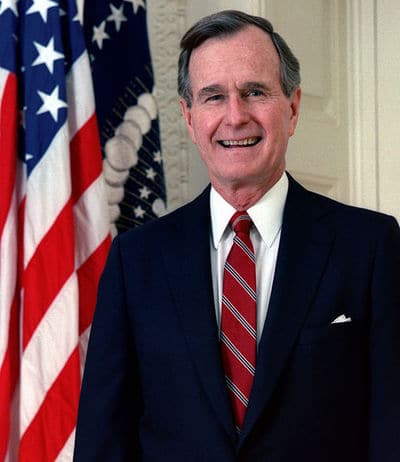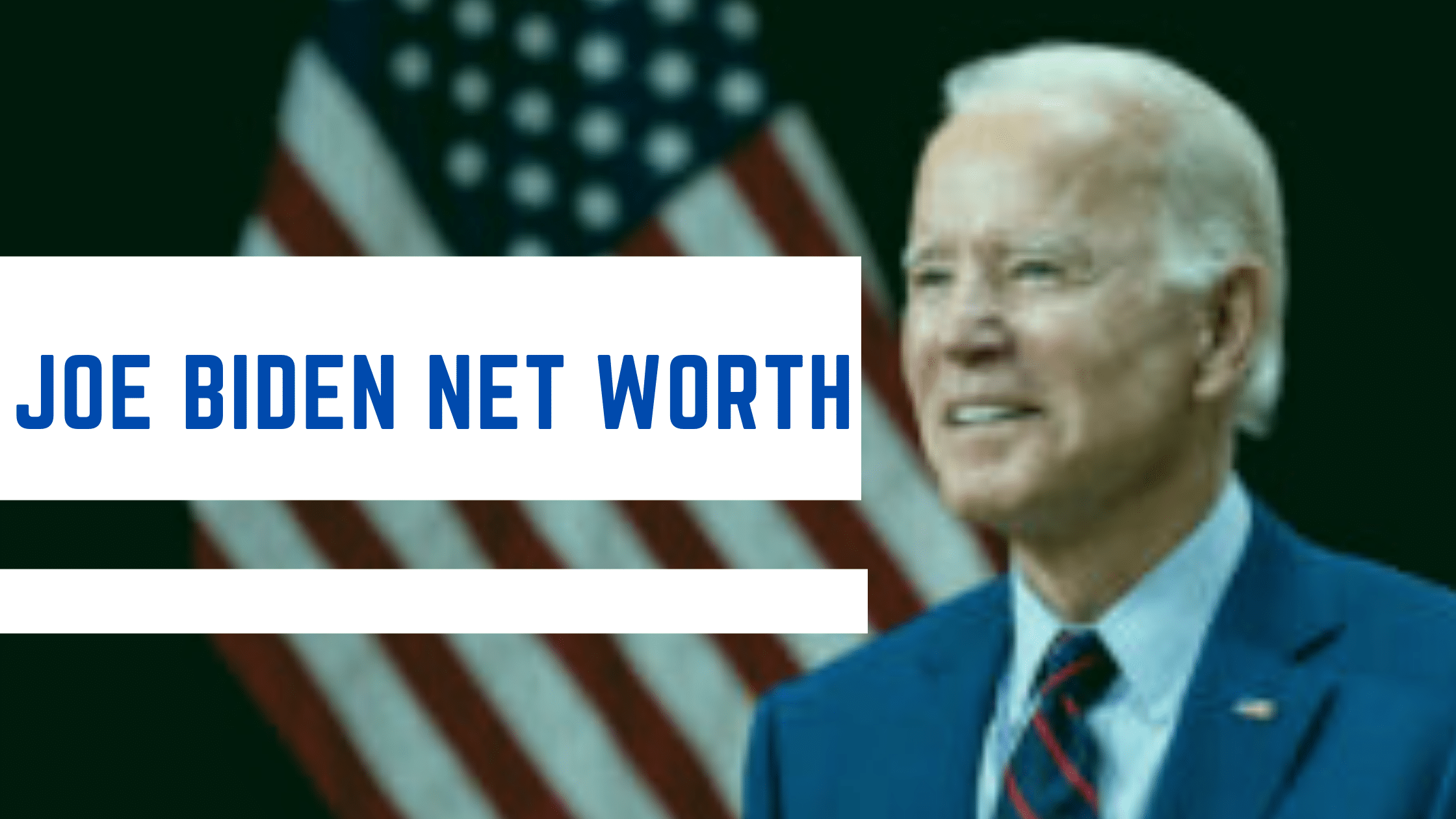Table of Contents
ToggleWhen was George H. W. Bush born?
George H. W. Bush was born in 1924.
Where was George H. W. Bush born?
George H. W. Bush was born in Milton, Massachusetts.
How old was George H. W. Bush when he became president?
George H. W. Bush became president at the age of 64.
What years was George H. W. Bush president?
George H. W. Bush was president from 1989 – 1993.
When did George H. W. Bush die?
George H. W. Bush died at the age of 94 in 2018.
How did George H. W. Bush die?
He died following a long battle with vascular Parkinson’s disease.
A Brief Biography of U.S. President George H.W. Bush
Although now perhaps more famous as the father of a U.S. President, George Herbert Walker Bush was a president himself, serving as the 41st President of the United States of America from 1989 to 1993.
Early Life 1924-1948
George Herbert Walker Bush was born in Milton, Massachusetts as the second son of a prominent local family.
His parents were Prescott Bush and Dorothy Walker Bush. The latter’s maiden name, Walker, would become incorporated into George Bush’s name as part of his famous middle initials H.W. The H stands for Herbert, which comes from George Bush’s maternal grandfather, George Herbert Walker, a leading Wall Street investment banker.
Due to his family’s wealth, Bush was little impacted by the Great Depression growing up.
Education
The Bush family moved to Greenwich, Connecticut, in 1925 due to Prescott’s work, and young George Bush spent most of his formative years growing up there. Bush attended Greenwich Country Day School as a youth and was sent to the elite Phillips Academy in Massachusetts from 1937 to 1942. Upon completing his WWII military service in 1945, Bush would enroll at Yale University and graduate with a Bachelor of Arts with a major in economics and a minor in sociology.
World War II
Upon his 18th birthday, and after graduating from the Phillips Academy, Bush volunteered for the United States Navy and served as a naval aviator during World War II. When Bush moved to active duty, he was one of the youngest aviators in naval history. Bush flew bombers primarily in the Pacific theatre, where he earned the nickname “Skin” for his lanky appearance.
During one attack, Bush’s aircraft was shot down by the enemy, and though he was able to survive, his fellow crew was lost, and some fellow aviators had their livers eaten by the Japanese.
After returning to train for an invasion of the Japanese mainland that never took place, Bush was discharged from active duty in September of 1945. H.W. would marry his wife Barbara while on leave in 1945. The happy couple would go on to have six children. They had their first child almost immediately in 1946, George W. Bush.
The younger George Bush would be president himself just eight years after his father left office.
Business Career 1948-1963
Bush decided to move to Texas and capitalize on family connections to enter the oil industry. For several years, the family moved throughout the state and eventually settled in Midland, Texas. With the support of a family friend and his uncle, Bush started his own oil development business in 1951 and a second drilling company in 1953.
Though his work was primarily in the oilfields around midland in the Permian Basin, Bush moved his family to Houston in 1959. In Houston, Bush would gain political connections of his own, like befriending his longtime political ally, James Baker. At this time, Bush was rumored to be a C.I.A. asset, a claim he denied when The Nation reported it in 1988.
Early Political Career 1963-1971
George H.W. Bush first got a taste of politics by helping out with Dwight Eisenhower‘s 1952 presidential campaign. His father was also elected U.S. Senator in Connecticut for the first time.
After being elected Harris County Republican Party Chair in 1963, Bush then ran for U.S. Senate in 1964. Bush primarily chose to attack his opponent over the Civil Rights Act of 1964, which protects from discrimination based on race or gender, and he would later lose the election. However, many still saw Bush as a rising star in the Texas Republican Party despite his defeat. He was soon elected to the House of Representatives in 1966.
Executive Branch Experience 1971-77
After successfully being reelected to the House once and failing to become a Senator yet again in 1970, Bush would work in the Nixon administration as ambassador to the United Nations (U.N.). His time as ambassador would mark his first foray into foreign policy on the public stage. George was interacting diplomatically with rival countries like China, and the U.S.S.R. Bush was defeated on the “China question” in the U.N. when the body voted to formally recognize the People’s Republic of China, instead of the Republic of China, as China in 1971.
After Nixon was reelected in 1972, he quickly appointed Bush as the head of the Republican National Committee (RNC). However, during his tenure as chair of the party, the Watergate scandal broke out. After initially defending Nixon, Bush would try his best to save the party’s reputation.
After his time at the RNC, Bush served as a special envoy to China and later became Director of Central Intelligence (DCI) of the C.I.A. for one year in 1976.
Vice Presidency 1981-89
After leaving public office during the Carter presidency, Bush would become an executive of a bank in Houston before returning to serve as Vice President for the 40th President, Ronald Reagan, from 1981 to 1989. The two men had been rivals during the 1980 primary campaign, with Reagan calling Bush “elitist” and “uncommitted to conservatism” while Bush charged Reagan as senile and ripe for manipulation.
Though Bush won the Iowa caucuses, he couldn’t hang on to momentum and ultimately lost the primary and was chosen by Reagan as his running mate. Bush was selected for his relative youth and foreign policy experience, two things Reagan, at 69 and a former actor and governor of California, had lacked himself.
First Term 1981-84
Bush was noted for his low-key public persona. Often reported and presented as a “thinking man,” Bush was often unavailable to the press and had little interaction with the public during his time as vice president. As V.P., Bush refrained from criticizing his boss President Reagan and mostly stayed out of decision making. However, the Bush family attended many state events as vice president, including ceremonial events and state funerals.
After Reagan was shot during a botched assassination attempt, Bush refused to invoke the 25th amendment for fear of appearing as if he was trying to usurp Reagan’s powers. When Reagan recovered, he rewarded Bush for his loyalty by dining with him for lunch each Thursday for the remainder of his presidency.
Second Term 1984-88
During Reagan’s second term, he approached new Soviet leader Mikhail Gorbachev in hopes of easing tensions between the countries and essentially tasked his Vice President, Bush with this task. Bush did his best to woo Gorbachev by inviting him to New York City along with one of his childhood homes in Kennebunkport, Maine.
The improved relations led to more openness between the two powers, who signed many successful treaties as the Soviet Union showed the first signs of collapse.
Bush’s second term as Vice President was marred by the Iran-Contra scandal. Though Bush was never implicated, the scandal took a significant toll on the popularity of the Reagan administration. Nevertheless, Bush would succeed Reagan as president and become elected as the 41st President of the United States.
Presidency 1989-92
George Bush’s presidency was marked by opportunity on the world stage and economic challenges domestically. Yet, despite much success in foreign affairs, an economic recession ultimately resigned George H.W. Bush to a single term as president.
Foreign Affairs
In a reflection of his time as Director of Central Intelligence at the C.I.A., the country’s main international intelligence operation, George Bush’s presidency came with multiple consequential foreign policy initiatives and events. Some events changed the course of human history, such as brokering an amicable resolution to the Cold War or the passage of NAFTA. Others were a major embarrassment, like vomiting on the Japanese Prime minister. Below we will look at some of the administration’s highlights and lowlights:
End of the Cold War
Tensions between the Soviet Union and the United States were already easing by the second term of the Reagan administration, thanks mainly due to internal pressure within the U.S.S.R. The Bush presidency was fortunate in its timing in allowing Bush to oversee both the fall of the Berlin Wall and the collapse of the Soviet Union. Moreover, Bush’s earlier time courting Gorbachev proved helpful in brokering a peaceful resolution to the Cold War.
One of Bush’s major accomplishments was pushing for the unification of the German state. While some feared that a reunified Germany might bully and cause trouble for the European continent, Bush was a vocal proponent of the cause of reunification, going so far as to push for NATO certification.
Invasion of Panama
Lesser known than Bush’s later military engagement, the Gulf War, the U.S. invasion of Panama was undertaken in reaction to a Panamanian election and over fears that the ability for commerce to continue to transit through the Panama Canal may be threatened.
The U.S. viewed the Panamanian leader Manuel Noriega as a de facto dictator and drug kingpin who had long outlasted his usefulness as a check against communism in the region. The last straw was when Noriega ignored the results of a democratically held election. He lost and continued to hold onto power thanks to his control of the military.
Noriega was a paid C.I.A. asset from 1967 through to the 1980s, including when Bush served as Director of the C.I.A. Noriega worked in dual roles as both an informant in his dual role for the United States Government and as a General in the Panamanian army and later, from 1983 on, as military dictator of the country.
The U.S. relationship with Noriega began to deteriorate thanks to the General’s refusal to step down and his accepting money from the D.E.A. as part of anti-drug trafficking programs while protecting drug dealers and enabling them to launder money. The catalyst for the U.S. invasion is often attributed to the death of a U.S. Marine at the hands of the Panamanian Defense Forces (PDF).
The conflict was relatively unremarkable, though it represented the most extensive U.S. incursion since the Vietnam War, with over 26,000 soldiers. Although the war was brief, lasting only one month and one week and 4 days from December 20th, 1989, to January 31st, 1990, it proved costly, with some estimates of up to 1,000 or 3,000 civilian causalities and up to 337 military deaths combined.
The majority of the fighting was brief and centered around urban combat in the capital of Panama City. Noriega took refuge in the Vatican Diplomatic Mission for nine days before surrendering and being extradited to the United States.
He was later convicted on drug-related charges and would be imprisoned in the United States and France. Finally, Manuel Noreiga would return to Panama, where he would die while under house arrest in 2017 at age 83.
The Bush Administration would come under condemnation for the U.S. invasion of Panama from both the U.N. General Assembly and the Organization of American States. However, the main criticism that remains leveled is the outsized ratio of civilian casualties and destruction of the urban environment, along with the legality of the military action in the first place.
Gulf War
The Gulf War was undertaken to respond to the Iraqi invasion of U.S. ally Kuwait. Though Kuwait was many times smaller than Iraq, it was strategically important to the U.S. in the region as an ally and thanks to the country’s vast supply of oil. The main combatants were Iraq and an allied fighting force comprising six nations led by the United States.
The war saw sparse but fierce combat and was covered extensively on television for the first time thanks to cable networks like CNN, which caused some to call it the Video Game War. By the end of the war, an estimated 25,000 to 50,000 Iraqi soldiers were killed and 292 coalition soldiers. The number of Iraqi and Kuwaiti civilians lost or injured reaches the thousands.

Get Smarter on US News, History, and the Constitution
Join the thousands of fellow patriots who rely on our 5-minute newsletter to stay informed on the key events and trends that shaped our nation's past and continue to shape its present.
President Bush is best remembered for failing to force Iraqi dictator Saddam Hussein from power, deciding that the cost to American lives would likely be too great a cost. Bush would later say that he had come to regret that choice.
Bush’s Japanese “Vomit Incident”
While minor in relation to his achievements, Bush is nonetheless popularly remembered for being sick on the prime minister of Japan. On January 8th, 1992, the embarrassing incident took place during a 12-day trip through Asia.
Although President Bush had become ill and previously vomited following a tennis match that he lost to his host, the Japanese Prime Minister Kiichi Miyazawa, he insisted he was fine to go to dinner later that evening.
Shortly into the meal, the president was overcome with his illness and slumped into Prime Minister Miyazawa’s lap, where he promptly became sick again.
Though the incident did no lasting damage to Bush’s health or the U.S.-Japan relationship, it was nonetheless an embarrassing coda for the statesman that was President Bush.
Domestic Affairs
Despite all of his success in foreign affairs, President Bush consistently failed to gain traction on the domestic front. For example, after giving a rousing convention speech about volunteerism in which he spoke of community organizations as “a thousand points of light” across the country, Bush failed to harness much of this energy during his presidency. Many attributed this to Bush’s aloof public persona and inability to connect with the common person. This general public issue problem that Bush would try to combat on the domestic front by leaning on the popularity of his wife, Barbara Pierce.
Americans with Disabilities Act of 1990
One of the major pieces of legislation passed by Congress and signed by President Bush during his tenure was the Americans with Disabilities Act of 1990. This law protected those with disabilities from discrimination similar to those offered under previous Civil Rights era legislation.
The law differed from the civil rights legislation in that it mandated that accommodation be made for the disabled both in public spaces and by employers. Although President Bush could only sign the law once passed by Congress, he was happy to lobby for its passage due to his connection with the disabled.
Economic Issues
If Bush had to overcome one major hurdle and failed to do so, it was economic headwinds. The economy that Bush had inherited from Reagan had been growing steadily since the early 1980s. Yet, by January 1992, the economy was entering its 19th month of recession.
8 in 10 Americans felt that the economy was in bad shape and blamed President Bush. As the economy continued to flag and the job market deteriorated, many families blamed President Bush for their financial situation. His economic woes were a major influence on Bush’s failed bid for a second term.
Judicial Appointments
Though Bush would nominate two Supreme Court Justices during his single term, they both would come to disappoint him in different ways. Bush would grow to be disappointed by the liberal rulings of Justice Souter and was also made unhappy by Justice Thomas’s behavior during his confirmation hearings which devolved into the Anita Hill controversy.
In addition to the two Supreme Court Justices, Bush was able to appoint well over 200 judges to the U.S. federal bench.
Post-Presidency 1993-2017
After losing his bid for reelection to Bill Clinton in 1993, President Bush essentially chose to retire from public life. However, he would go on to start a family foundation and, from time-to-time return to support one of his family members’ political ambitions. His sons Jeb and George were elected Governor of Florida and Governor of Texas simultaneously, and the elder Bush encouraged his sons to stake an independent political identity.
Just eight years after he left office, his son was elected the 43rd President of the United States and served from 2001 to 2009.
Historians widely consider H.W. Bush to be an average president. However, while he was likely above average when it came to international relations, he was clearly below average regarding U.S. domestic issues, like the economy.
This is clearly illustrated by the fact that Bush’s approval rating peaked at 74% during the Gulf War and slowly but steadily fell during the recession of the early 90s.
While maybe not recognized as the greatest president in U.S. history, Bush was still widely respected after leaving office and maintained bipartisan popularity throughout his later years. Barack Obama awarded Bush the Presidential Medal of Freedom in 2011, the nation’s highest civilian honor.
President Bush died at age 94 on November 30th, 2018, after a long battle with vascular Parkinson’s disease. At the time of his death, he was the longest-lived U.S. president, an honor that now belongs to Jimmy Carter.










